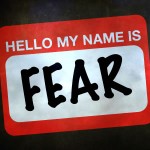By Buck Sexton | From TheBlaze.com | On April 23rd, 2012
Occupy Wall Street plans to come back with a bang in less than ten days when it unleashes its May Day General Strike that could blockade the bridges and tunnels necessary for New York City to function.
Occupywallstreet.org lays out the plan openly on its website:
“On May 1, 2012, autonomous direct action groups within Occupy Wall Street, as a part of the global mobilizations for general strike and economic non-compliance, will block one or more Manhattan-bound bridges or tunnels to protest the shameful opulence of the 1%.”
In addition to the planned transit blockade, Occupy is rallying factions across the country in solidarity with general strikes around the world: “For the first time, workers, students, immigrants, and the unemployed from over 115 U.S. cities will stand together for economic justice.”
The global breadth of the protests comes alongside recent Occupy efforts to tie itself to a long history of protest and social upheaval, including the NYC Fiscal Crisis of 1975:
“Last fall, when Occupy Wall Street blocked the Brooklyn Bridge for several hours, we were acting within a long line of protest in New York City that stretches back to the so-called Fiscal Crisis of 1975, which much like now, was a bank led assault against working people. In the summer of 1975, striking hospital employees, including doctors and nurses, blocked the Brooklyn Bridge. The bridge was even blocked by thousands of laid-off police, the very people who act as the guard dogs of the 1%.”
Occupy-affiliated websites have also begun to highlight the history and significance of New York’s Union Square, which is currently the makeshift daily headquarters of the movement after they were evicted from their Zuccotti Park encampment.
The storied Marxist-activist past of Union Square is unknown to most New Yorkers (and the rest of America) but shows that the Occupiers have added a knowledge of history to their organizational tactics and digital media savvy. According to OccupyWallSt.org, Union Square,
“started being used for political rallies soon after notable Labor Day marches in the 1860s (the traditional spring festival of May Day became International Worker’s Day to many after the 1886 Haymarket incident in Chicago), but … it is really only in the beginning of the 20th Century when the use for political demonstrations really began.” Specifically, the IWW (Industrial Workers of the World) starts to have a lot of events.”
It also appears that the Occupiers may use a dual-pronged approach on May Day, as some major labor unions have applied for and received a legal protest permit to walk from Union Square to Battery Park at the bottom of Manhattan.
But that legal protest activity by no means precludes the possibility of disruptive illegal protest– even so-called “Black bloc” tactics— from defining the May Day General strike. The Occupiers themselves point out that:
“both the Brooklyn Bridge and the Holland Tunnel were shut down during protests of the shooting death of Sean Bell. But this May 1, we will create the biggest shut down the city of New York has ever seen.”
Where is this all going? What purpose does the general strike serve in the broader context of the Occupy movement?
Learn everything you need to know about the Occupy Movement, where it‘s been and where it’s going, in this ebook Occupy: American Spring, the Making of a Revolution, available now for pre-order and officially released tomorrow (April 24th).
The original article was posted at http://www.theblaze.com/stories/occupy-wall-street-plans-massive-may-day-bridge-and-tunnel-blockade-in-nyc/












